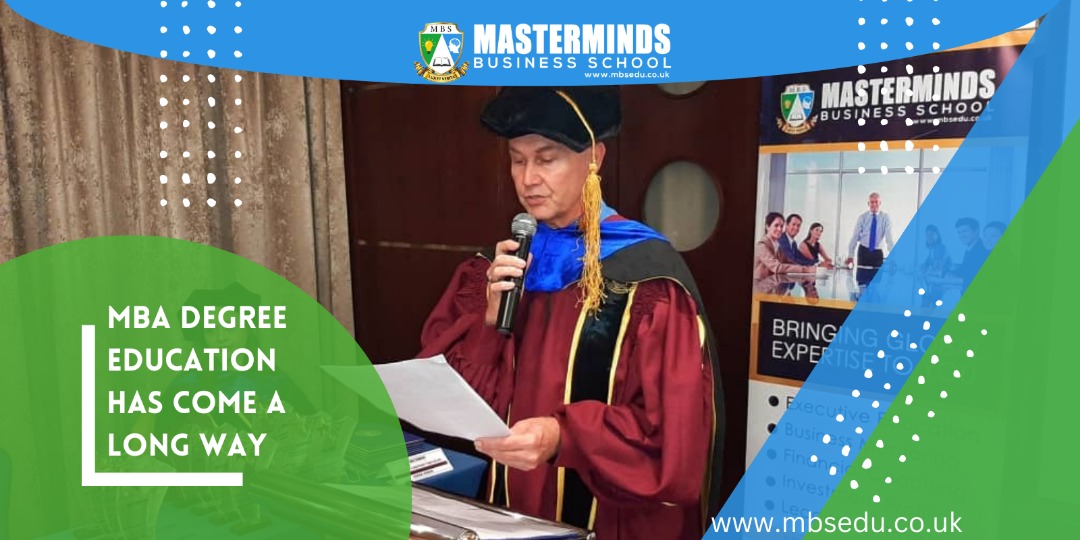
- Email: info@mbsedu.co.uk


Founded in 1900, the Truck School of Business at Dartmouth, US is the first graduate school of management. It was the first institution conferring advanced degrees (Master s) in the commercial sciences, the forebearer of the modern MBA. Further, the University of Chicago, Graduate School of Business (now the University of Chicago Booth School of Business) introduced the Executive MBA programme in 1940 for working professionals.
The MBA degree may have come a long way since then in shape and form, But it is still considered one of the most coveted degrees. The focus of MBA education must shift in order to meet the challenges of an increasingly complex marketplace. Master of essential knowledge, functional skills such as accounting, strategy finance, marketing and leadership, remains valuable, but instead of being an end in itself, this knowledge must be a means to an end, laying the groundwork for the entrepreneurial mindset. This mindset is important for successful leadership in a wide range of organizational setting, from start-up to multinational firm.
The MBA is not an academic degree, but a professional qualification. Most people look at MBA Degree as a terminal degree for pursuing the profession of management. However, some executives do come back to the campus for further studies, either when they want to change careers or to do doctoral work. The reasons for doctoral work are diverse. They may want to be independent consultant/professionals and a doctoral degree may add to their credentials. They feel that it is time to give back to society and would like to enter the world of academia.
However, even after combining all these reasons, one does not find too many MBAs opting for research. There may be individual cases of female MBAs opting out of corporate life for a Ph.D. during their sabbatical period, but most applicants to Ph.D. programmes in management come from other disciplines such as commerce, psychology, economics, mathematics, statistics and such others. There is nothing odd about it, as an MBA is not a prerequisite for a Ph.D. in management without any exposure to ‘management education and, therefore, have to spend a lot of time tuning themselves to the requirements of MBA Education.
Master of essential knowledge- functional skills such as accounting, strategy finance, marketing and leadership – remains valuable, but instead of being an end in itself, this knowledge must be a means to an end, programmes in management come from other disciplines such as commerce, psychology, economics, mathematics, statistics and such others. There is nothing odd about it, as an MBA is not a prerequisite for a Ph.D. in management without any exposure to ‘management education..
In India most MBA join the industry and only a few enter academics directly. However, some may opt for further education after their MBA Education even if they don t want to enter academic. Such individuals may go in for legal education or pursue Ph.D. in business management, operations management, MBA Distance Education, organizational management, finance and so on. IIM-Calcutta is also looking at establishing a consortium of B-School in India to jointly deliver a doctoral programme in management.